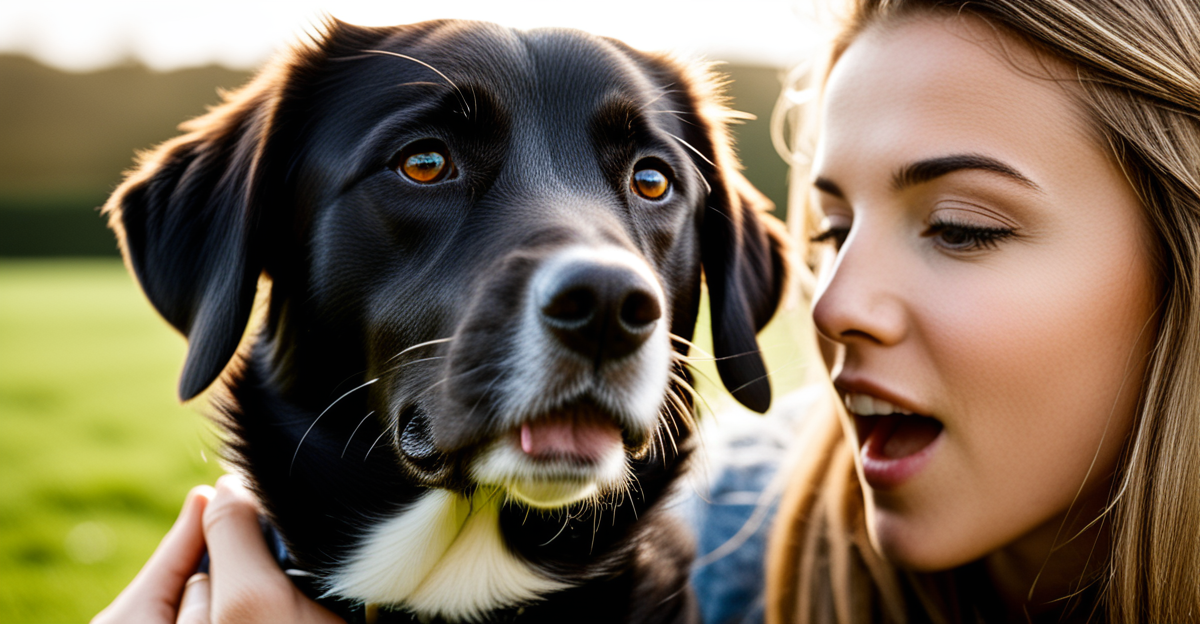Impact of Pet Ownership on Daily Routines in the UK
Pet ownership lifestyle UK significantly reshapes daily routines, introducing fresh responsibilities and activities. For dog owners, mornings and evenings are often dedicated to walks, exercise, and feeding schedules. These daily routines require time allocation that non-pet owners typically do not face, emphasizing care and attention. Cat owners also adjust their habits, focusing on litter cleaning and interactive play, though their timing may be more flexible.
Changes with pets extend beyond exercise; they influence work-from-home schedules and leisure activities. UK pet owners report structuring their day to accommodate feeding times, grooming, and play, embedding these needs into their lifestyle. In contrast, those without pets enjoy more spontaneous and less structured time.
This might interest you : What Are the Latest Pet Ownership Trends in the UK?
Compared to non-owners, pet owners’ routines tend to include increased outdoor activity, especially for dog care. This imbues the day with purpose and often enhances physical health. However, it also demands time management skills to balance pet needs and personal or professional commitments.
Overall, pet ownership lifestyle UK creates a structured rhythm where care, exercise, and companionship integrate seamlessly, reshaping daily routines and enriching everyday life with new responsibilities.
Also to discover : What Are the Most Common Pets in UK Households?
Impact of Pet Ownership on Daily Routines in the UK
Pet ownership lifestyle UK demands notable changes with pets, especially in daily routines. Owners adjust schedules to accommodate pet care, with dedicated time for feeding, grooming, and exercise. For example, dog owners often begin mornings earlier to manage walks, while cat owners focus on cleaning litter trays or engaging in play during quieter parts of the day.
Morning and evening responsibilities differ by pet type. Dogs require consistent outdoor exercise, which influences owners’ morning and evening time blocks. Cats, although more independent, still need interaction and feeding routines that shape the owner’s day. These activities naturally extend or shift existing routines compared to non-pet-owner time use, where such commitments are absent.
These lifestyle shifts bring both routine structure and flexibility challenges. Pet owners often find their schedules revolving around animal needs, from early wake-ups to spontaneous pauses for care, illustrating how daily routines evolve. The pet ownership lifestyle UK reflects a balance between personal time and these essential care tasks, emphasizing the importance of adapting one’s day to ensure pets’ wellbeing and owner satisfaction.
Impact of Pet Ownership on Daily Routines in the UK
Pet ownership lifestyle UK demands specific adjustments to daily routines that differ considerably from non-pet-owner schedules. The changes with pets manifest primarily in structured time commitments, especially for dog owners who must allocate morning and evening periods for walks and exercise. These care routines are non-negotiable and directly influence their day’s organization.
Cat owners also experience changes with pets but often enjoy more flexible timing for feeding and litter cleaning, allowing some adaptability within their daily routines. However, both dog and cat owners report a clear pattern of embedding pet care tasks into their day, which contrasts with the spontaneous time use typical of those without pets.
Morning responsibilities for dog owners frequently include early walks, while evenings focus on winding down activities involving play and feeding. Cat owners may adjust their routines around dawn or dusk when pets are most active, demonstrating how daily routines shift to align with animal behaviour.
Overall, the pet ownership lifestyle UK promotes disciplined scheduling, integrating pet needs with personal and professional commitments. This reshaping of time use enriches lives but requires consistent attention to maintain balance.
Financial Implications of Owning Pets in the UK
Understanding pet ownership costs UK is essential for managing daily routines and lifestyle changes with pets. Expenses typically include food, grooming, veterinary care, and insurance. Feeding a dog or cat regularly impacts household budgets, requiring consistent allocation for quality pet food. Grooming costs vary by pet type; dogs often need professional grooming more frequently, while cats usually require less maintenance.
Veterinary care represents a significant portion of pet care expenses. Routine vaccinations, flea treatments, and unexpected health issues demand financial preparedness. Many UK pet owners invest in pet insurance to mitigate sudden veterinary bills, which offers valuable peace of mind.
Unexpected costs can disrupt budgets without warning. For instance, emergency medical treatments or replacing damaged household items may arise. Budgeting tips for pet owners include setting aside a monthly “pet fund” and researching affordable local veterinary services to balance costs effectively.
Compared to non-owners, pet owners face unique financial commitments. Unlike impromptu purchases, pet care expenses are recurring and demand long-term planning. This financial aspect of the pet ownership lifestyle UK creates a structured approach to managing both time and money responsibly.
Impact of Pet Ownership on Daily Routines in the UK
Pet ownership lifestyle UK involves distinct changes with pets that shape daily routines considerably. Adjustments begin with structured time for essential pet care like feeding, grooming, and exercise. For instance, dog owners typically start their mornings earlier to accommodate walks, while evening periods often include additional outdoor activities to meet their dog’s exercise needs. These tasks are non-negotiable and demand consistent integration into the owner’s day.
Cat owners experience somewhat more flexibility in their daily routines, tending to schedule feeding and litter maintenance around quieter parts of the day, such as early mornings or late evenings. However, feline care still imposes predictable commitments that influence time use differently than for non-pet owners, who generally enjoy less structure.
The contrast between pet owners and non-owners is stark; those without pets typically benefit from more spontaneous schedules, whereas pet owners’ days consistently revolve around animal care priorities. These changes with pets reflect a disciplined balance, where physical activity, emotional bonding, and caregiving mesh to transform time management. Consequently, the UK pet ownership lifestyle embeds new rhythms that redefine how owners approach each day.
Impact of Pet Ownership on Daily Routines in the UK
Pet ownership lifestyle UK involves significant changes with pets that reshape daily routines profoundly. Most owners must adjust their schedules to meet the consistent care requirements of their animals. For instance, dog owners allocate specific morning and evening slots for walks and exercise, which are crucial for the pet’s health and wellbeing. These walks often set a strict framework for the start and end of the owner’s day, contrasting sharply with the more spontaneous time use seen in non-pet owners.
Cat owners experience different changes with pets; their routines may be less rigid but still require regular feeding, litter maintenance, and interaction, which commonly occurs during quieter periods such as early mornings or evenings. Both pet types demand integration of care activities, but dog ownership notably imposes more structured commitment compared to cats.
These adjustments highlight how the pet ownership lifestyle UK necessitates disciplined and often repetitive time management. Owners frequently coordinate work, leisure, and social activities around these routines, emphasizing the role pets play in defining daily organisational priorities. This contrasts with non-pet owners, whose daily schedules generally offer greater flexibility and fewer fixed time demands.
Impact of Pet Ownership on Daily Routines in the UK
Pet ownership lifestyle UK significantly reshapes daily routines through consistent changes with pets. Dog owners often face rigid morning and evening obligations, such as early walks and evening outings, which are vital for their pet’s health and wellbeing. These activities require owners to plan their schedules around these set times, reducing flexibility compared to non-pet owners.
Cat owners, while benefiting from more adaptable care routines, still incorporate feeding and litter maintenance into their daily plans. Typically, these tasks align with quieter parts of the day, like early mornings and late evenings, influencing the owner’s time use differently.
In contrast, non-pet owners generally enjoy less structured days without fixed commitments, allowing for spontaneous activities and more personal freedom. This stark difference highlights how the pet ownership lifestyle UK demands time management skills to balance personal, professional, and pet care responsibilities effectively.
Ultimately, these changes with pets embed a purposeful rhythm into owners’ lives, fostering not only physical activity through dog walking but also emotional engagement through caregiving tasks. The adjustments are essential parts of the pet ownership lifestyle UK, directly influencing how daily routines unfold.
Impact of Pet Ownership on Daily Routines in the UK
Pet ownership lifestyle UK requires clear changes with pets that affect daily routines significantly. Dog owners often adjust their mornings and evenings around walks and exercise sessions, which are key for the pet’s physical health and mental stimulation. These activities occur early in the day and at dusk, structuring the owner’s schedule around rigid time blocks. Conversely, cat owners experience different but still meaningful changes with pets; their routines usually include feeding, litter cleaning, and moments of play, often timed to quieter parts of the day such as early mornings or late evenings.
Comparing to non-pet owners, those with pets face more structured and predictable routines. While non-owners can enjoy spontaneity, pet owners must establish consistent daily commitments that revolve around their animals’ needs. This restructure integrates pet care activities into everyday plans, requiring adjustments to work, social, and leisure time. The pet ownership lifestyle UK thus entails balancing personal priorities with the animal’s welfare, demonstrating how integral pets become to shaping owners’ time use.
Impact of Pet Ownership on Daily Routines in the UK
Pet ownership lifestyle UK demands concrete changes with pets, prominently seen in daily schedules. Dog owners adjust their mornings and evenings around walks, often starting early to ensure adequate exercise. These responsibilities create fixed time blocks that shape the day’s framework. Feeding, grooming, and play also punctuate daily routines, reinforcing a structured lifestyle.
Cat owners experience different changes with pets. Their commitments, while less rigid, still require regular feeding and litter maintenance typically timed during quieter parts of the day. This flexibility allows some adaptation, but the presence of a pet still influences daily routines, contrasting markedly with non-pet-owner time use.
Non-pet owners enjoy greater spontaneity, benefiting from fewer fixed obligations. The structured nature of pet care embeds a purposeful rhythm, demanding conscientious time management. These daily routines not only meet animal needs but also encourage activity and regularity, which many owners find rewarding despite the necessary adjustments.
Thus, the pet ownership lifestyle UK revolves around integrating consistent care tasks into the day, setting it apart from less structured schedules common among those without pets.





